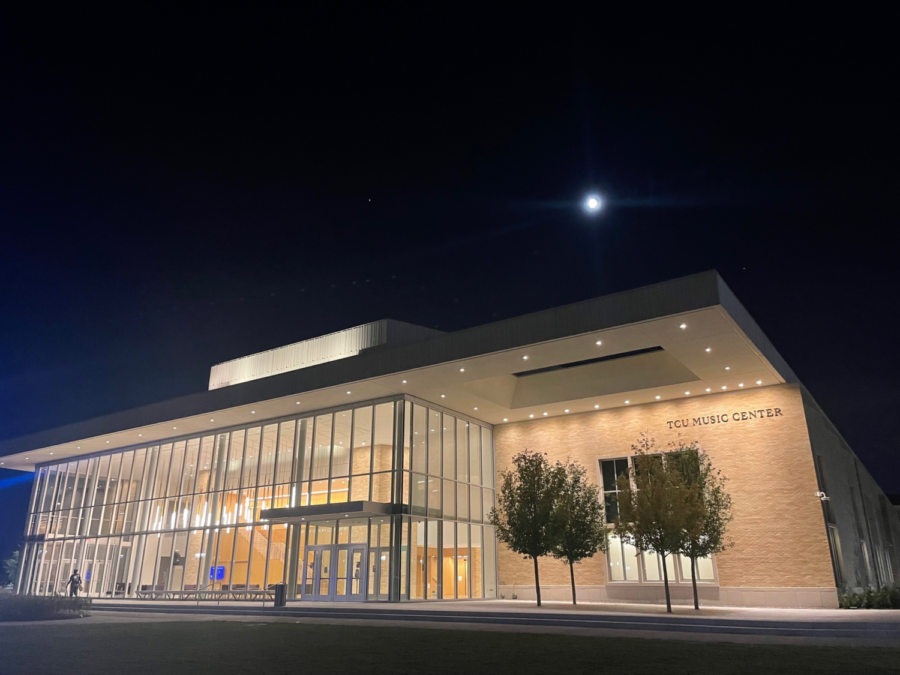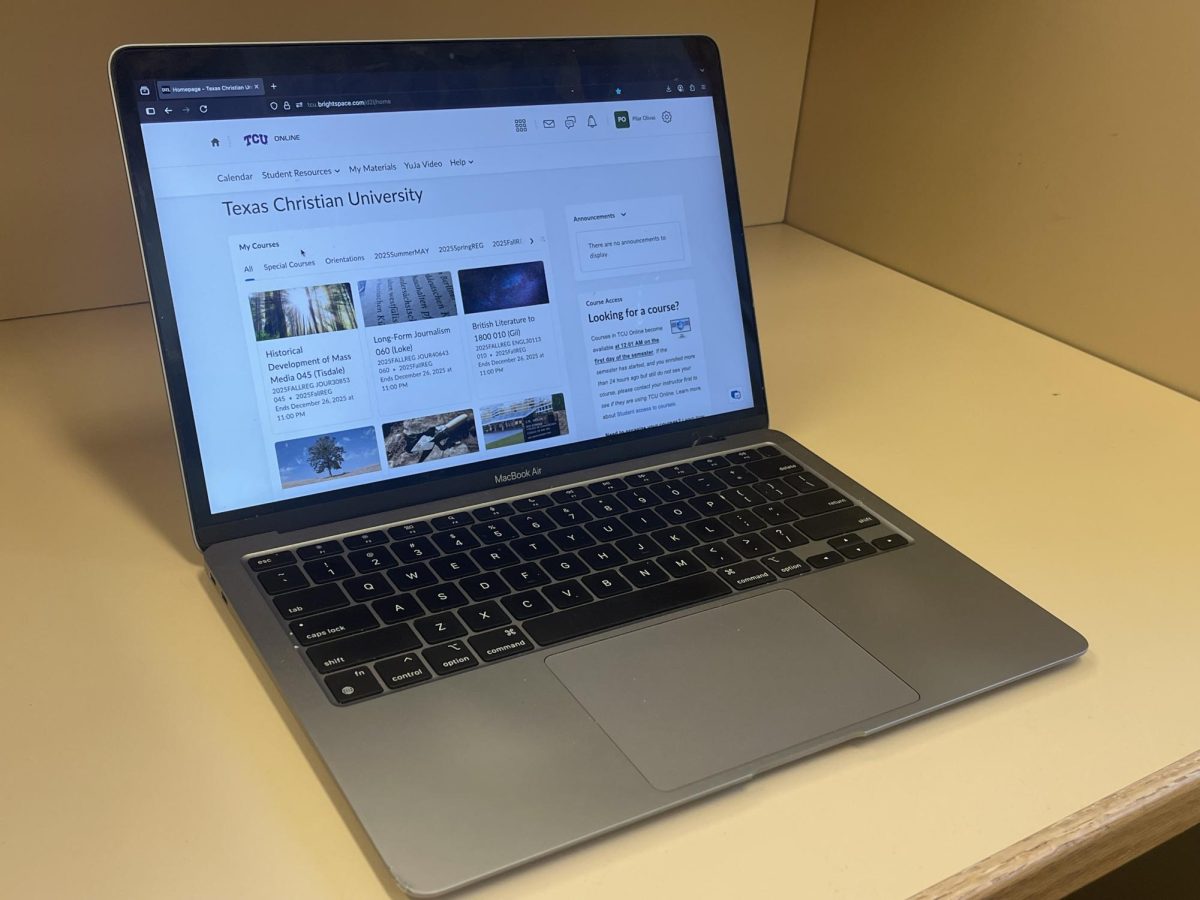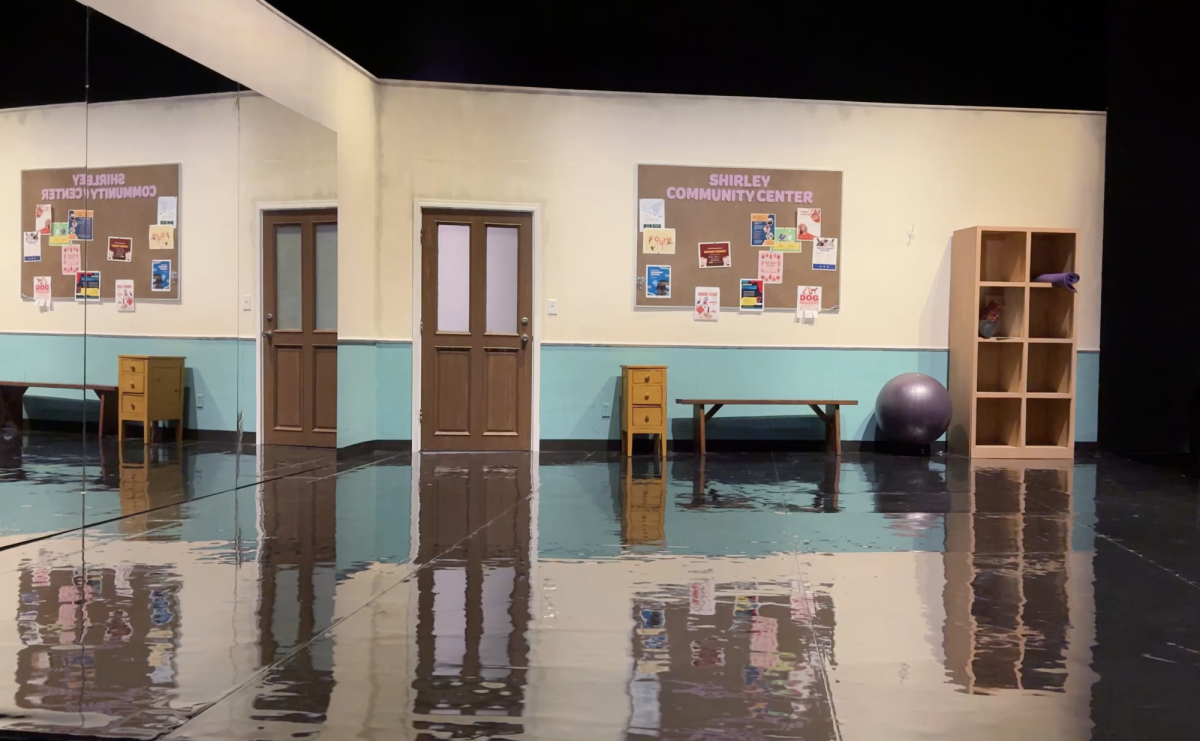Many new night class options were introduced this fall as the university scrambled to adjust to COVID-19 protocols calling first for 6 feet, and later 3 feet, of social distancing.
The protocols have been set aside, but students should get used to the possibility of evening classes.
Registrar Mary Kincannon said night classes will be a feature this spring semester as TCU adjusts to a nearly five percent increase in students.
“In the midst of it all, we were anticipating about 2,200 first-year students,” said Kincannon.
The class of 2025 has about 2,500 students, the largest group among undergraduates.
Read more: TCU under pressure to find housing solutions
Scheduling during a pandemic
The TCU Registrar’s Office is responsible for inputting class schedules into the school system. The office sends requests to department deans, associate deans and chairs for the first pick on class location and times. This year, the Registrar’s Office had to override many requests, due to distancing requirements.
Mary Kincannon, TCU’s registrar, oversees class scheduling. Social distancing requirements of 6 feet were in place as classes were organized in February.
Kincannon explained that social distancing regulations impacted the scheduling process.
“Most of the classes that we would typically schedule in the lecture halls wouldn’t fit in the lecture halls. We had classes in the BLUU ballroom, the Kelly Center ballroom, the Worth Hills dining area, the big music performance hall,” Kincannon said.
Many classes were moved to untraditional locations, creating roadblocks in overlapping class requests. Courses were moved to later hours of the day to ensure that rooms were not booked by multiple professors. Additionally, the Registrar’s Office had to consider courses that couldn’t take place at the same time because of students who had to be enrolled in both.
The Registrar’s Office has access to a software system that simplifies the process of schedule building. Staff members can submit course locations and times to avoid overbooking.
On Aug. 1, the Registrar’s Office got word that social distancing requirements were decreased to 3 feet. At this time, students had already enrolled in courses. The only change that could be made was to move some classes back to more traditional locations.
A look into the future
Class scheduling could look different from this point forward.
The Registrar’s Office is processing spring course requests and beginning the scheduling process. The increase in student body numbers is likely to solidify night classes for the coming semester.
The growing student body is especially putting strain on the bigger classes, such as required first-year courses.
Read more: “First-year class is largest in TCU’s history.”
TCU’s student body population during the fall of 2019, 2020, and 2021. University enrollment increased by 4.9% from 2020 to 2021.
In recent semesters, students have been used to finishing classes in the early hours of the afternoon. This was not the case in previous years.
“There was a pretty strong night school where working people could come in at night and take classes, and over time, earn a degree,” said Kincannon.
Though TCU student involvement must adapt to night classes, the scheduling shift is providing opportunities in other areas of the university. Individuals who work during the day can commute to campus after shifts to attend class and earn their degree at a quicker pace.
Impact on student involvement
TCU has a high level of student involvement in campus life. The university offers 275 student organizations. Additionally, many students are involved in activities that are not affiliated with the school.
An article by The Wall Street Journal ranking universities in the South even put TCU at the number two spot for student engagement.
“[Student engagement] measures views on things such as interactions with faculty and other students, the effectiveness of teaching and whether students would recommend their school,” The WSJ said to describe their rankings.
Extracurricular involvement, being one of the most prominent characteristics of our university, is facing obstacles through the scheduling of night classes.
Allyson Joyce, president of TCU’s “It’s On Us,” meets biweekly at 7 p.m. on Tuesday with the hundreds of members of her club. The club is affiliated with the national organization “It’s On Us,” an organization made to educate and address sexual violence on campuses.
Joyce described the changes that come with their members’ enrollment in night classes.
“A handful have night class conflicts but most just come whenever they are done with class,” said Joyce.
“It’s On Us” has doubled in membership since last year. Night classes have not affected involvement numbers. Rather, club operations have adapted.
Kendall McCarthy, president of the TCU chapter of “Her Campus,” holds club meetings at 5:30 p.m. on Mondays. “Her Campus” is a campus media outlet for college women. McCarthy shared that the club has a special status for members who have conflicting night classes.
“They want to write and contribute to our organization, but can’t make it to our regular meetings,” said McCarthy.
“Her Campus” is in its second year of operation at TCU. Contribution is expanding, despite more night classes.
This year has brought new challenges to all aspects of the university. Night classes are now our reality. Though unfamiliar, this change benefits first-year and working individuals, while preserving the health of our student body.










